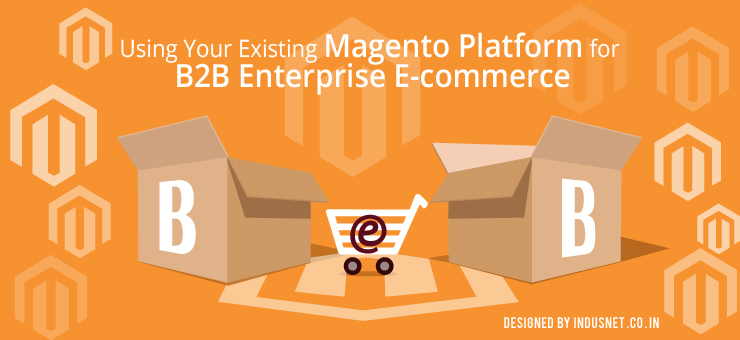
No matter which business model you are into, it is utmost important to equally focus on the B2B (Business to Business) needs of your business while you run a retail e-commerce business; focusing solely on the normal B2C (Business to Customer) is not enough. Now, you must be wondering why. Here are the key reasons for your consideration and business success:
The first and foremost being B2B enterprise e-commerce always co-exists with B2C business. Almost every retail online portal necessitates having the presence of distributors, resellers, sales employees, wholesalers etc. for a continued business growth with sustainable revenue from these business stakeholders. After all, a considerable amount of revenue that gets generated from this channel can be used for boosting marketing campaigns and increasing sales for your B2C business.
It’s true that Magento, like any other SaaS or Open Source software, mainly supports B2C model; however, Magento is flexible enough to be attributed with a number of B2B features. This blog would take you through a detailed synopsis of which B2B features Magento can be configured with and which B2B features e-retailing often needs.
Some small changes in the As Is Magento installation can provide you with almost all the B2B features required for your business. As nowadays, B2B portal needs are similar to the fundamental B2C business needs, it’s not too difficult to customize Magento with the following features that are mostly required by retailers, resellers etc. like you:
Though B2B business needs are widespread and even 25% of those requirements can hardly be predicted, but here are some of the most common B2B features that e-commerce businesses generally need:
Now, Magento includes purchase order by default but to make it more B2B business friendly, it’s necessary to include such a feature that would allow contact persons to attach a PDF based purchase order if they like to. Moreover, credit limit that you can set for your partner companies at the onset of a financial year is something new for Magento. You can set this credit limit on the factors like order frequency, average order amount and payment status etc.
Now, to make organization account management easier for your sales employees, it is important to feature your Magento based e-commerce website with this B2B module.
B2B e-commerce requirements are very much business specific and unique for the organization. Through this blog post, we have tried to cover the most common features of B2B e-commerce model. Apart from the aforementioned B2B e-commerce features, there are many other features that Magento can be configured with.
FAQs :
To use your existing Magento platform for B2B enterprise e-commerce, you need to customize the platform to meet the unique needs of B2B customers. This may involve adding features such as bulk ordering, account-based pricing, and multi-user support.
2. What are some of the benefits of using Magento for B2B enterprise e-commerce?
Some benefits of using Magento for B2B enterprise e-commerce include its flexibility, scalability, and ability to handle large product catalogs. It also has a wide range of features and integrations that can help streamline your business processes.
3. What are some of the challenges of using Magento for B2B enterprise e-commerce?
Some challenges of using Magento for B2B enterprise e-commerce include the need for customization to meet the unique needs of B2B customers, as well as the cost and complexity of implementing and maintaining the platform.
4. How can I ensure the security of my B2B enterprise e-commerce platform?
To ensure the security of your B2B enterprise e-commerce platform, you should implement strong password policies, use SSL encryption, and regularly update and patch your software. You should also work with a reputable hosting provider and consider using a web application firewall.